Join HQI and the Alliance for Quality Improvement and Patient Safety for two days of topic-focused breakout sessions, Safe Table discussions, and amazing keynote presenters — all focused on Patient Safety Evaluation Systems.
8 a.m. – 12 p.m., PST
10 a.m. – 2 p.m., CST
11 a.m. – 3 p.m., EST
“Once you get patient safety right, everything else follows.”
– Mark Chassin, MD, FACP, MPP, MPH
President Emeritus, The Joint Commission
Brought to you by:
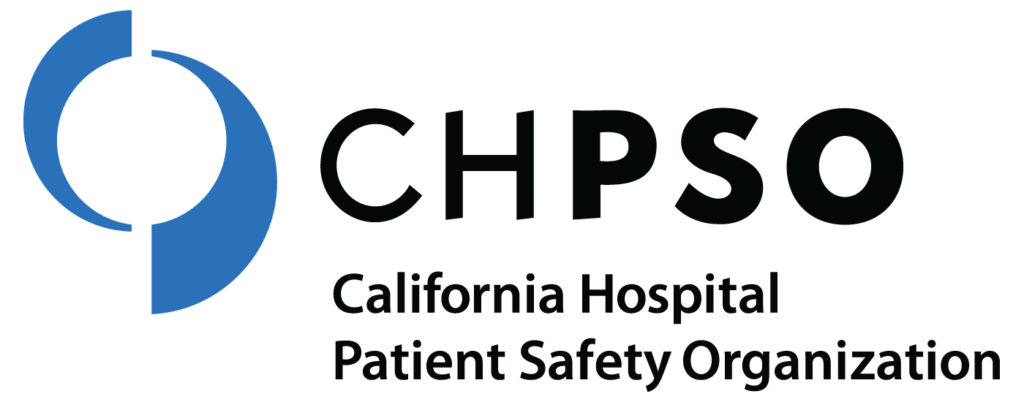


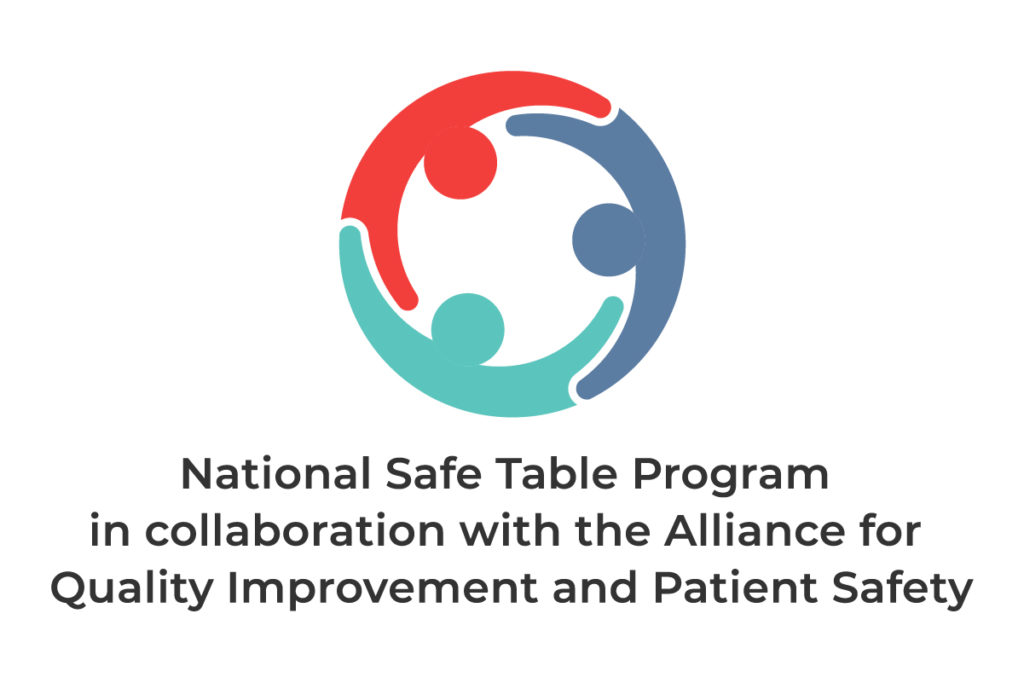
Legalese of the Patient Safety Evaluation System (PSES) can be both confusing and intimidating for health care providers. To conquer the confusion, this year’s virtual PSES Summit will provide information to help break down the requirements into digestible pieces. Presenters will answer questions about how to manage institutional PSES, improve the delivery of patient care design, and discuss innovative programs that reduce costs, accelerate efficiency, and enhance reliability.
The PSES Summit will be held over two half-days and will include national safe table discussions, topic-focused breakout sessions, and amazing keynote presenters – all centered around health care innovation and patient safety evaluation systems.
Target Audience:
Physicians, nurses, CNO, CRO, CMO, compliance officers, risk management, clinical operations staff, quality & patient safety staff
8:00 – 8:15 a.m. | Welcome and Opening Comments
Peggy Binzer, Esq., Executive Director, Alliance for Quality Improvement and Patient Safety
8:15 – 9:30 a.m. | Keynote | Recommitting to the Zero Harm Goal as the Way to Emerge from the Pandemic
Mark Chassin, MD, FACP, MPP, MPH, President Emeritus, The Joint Commission, Partner, Relia Healthcare Advisors
As the pandemic diminishes in severity, how can health care organizations restart or re-energize these initiatives? Dr. Chassin will discuss the rationale for aiming for zero harm, describe how such efforts can greatly assist recovery from some of the pandemic’s worst effects on the health care workforce, and provide specific guidance on how to get back on the road to high reliability.
9:30 – 10:45 a.m. | Press Ganey Safety Event Classification Patient Safety Measurement System Safe Table* (Not Recorded)
Kerry Butler, PharmD, MBA, Senior Manager Strategic Consulting, Press Ganey
Safety and Reliability Expert Kerry Butler will provide an interactive session outlining Press Ganey’s Safety Event Classification patient safety measurement system. He will walk through specific patient safety events and describe how Safety Event Review Teams can use a HRO-based methodology to identify a safety event, determine deviation from generally accepted performance standards, identify known complications, and assign patient safety event type and level of harm based on the safety event type and taxonomy and harm scale.
*The PSES Summit includes two National Safe Tables. To participate in the Safe Tables, you are required to agree to a confidentiality agreement that can be found here. You will be asked to agree prior to joining the Safe Table session.
10:45 – 11:00 a.m. | Break
11:00 a.m. – 12 noon | Concurrent Breakout Sessions (Choose one)
- Journey Towards Cooperative Quality & Safety Engagement with Emergency Medical Services Partners
Susan Gilpatrick, RN, CPHRM, Manager, Healthcare Risk Operations and Todd Pelletier, MS, RN, EMT-P, Director, Patient Transfer Center, Sutter Health
Presenters will share and discuss their journey to increasing reliability and safety in the transfer and transportation of our patients through partnering with Emergency Medical Services providers through quality & safety review in protected forums. - Bringing Reliability to Causal Analysis: Using Human Factors Engineering
Lee Erickson, MD LSSMBB, Founder, Adaptive Health Systems, LLC
Why aren’t our RCA-squared methodologies moving health care toward actual high reliability? In this session, participants will learn another way to look at causal analysis, one that digs deeply into organizational decision-making and human factors engineering principles and presents clear directions to countermeasures that stick. - Hazards on the Road to High Reliability: Structuring Your PSES to Pave the way to Patient Safety
Andrew Martin, MSN, RN, CPHRM, Patient Safety Analyst IV, and Jeraldine Stoltzfus, MBA-HA, RN, BA, ECRI
During this session, learn how your organization can benefit from the protections available through the federal Patient Safety and Quality Improvement Act. Presenters will discuss the legal protections afforded to providers under the Act and strategies for drafting your PSES to best leverage these protections. They will also highlight best practices that foster important conversations with key stakeholders across the health care continuum including hospitals, ambulatory care, ambulatory surgical centers, and long-term care and vendors both internally and externally to your organization.
8:00 – 8:15 a.m. | Welcome and Comments
Robert Imhoff, President, Hospital Quality Institute
8:15 – 9:15 a.m. | Concurrent Breakout Sessions (Choose one)
- When Emergency Nurses Need Emergency Services
Kelsay Irby, RN, ER Charge Nurse, St. Michael Medical Center; Sharon Hickman, MBA, CPHQ, CPPS, CPXP, LSSMBB, President, ChangeZen Consulting, LLC
It made the headlines – “Charge Nurse Calls 911.” It’s an issue across the country with emergency departments overwhelmed with patients, staffing shortages, and access to resources. Kelsay Irby is the ER nurse manager that called for help. In this session you will hear her story, understand the effects on safety, and possibilities to address the escalation and resolution. - NAPA Anesthesia Patient Safety Institute “Anesthesia Risk Alert Program”
Julie Marhalik-Helms, BSN, RN, Vice President of Quality Improvement and Brent Lee, MD, MPH, FASA, Director of Clinical Excellence and Performance Improvement, North American Partners in Anesthesia
In this presentation we will review how PSO safe table case reviews and data analysis were used to create this program, the innovative patient safety paradigms and methodologies behind its interventions, how the program was implemented across the nationwide practice and the impact of the program to reduce harm in the targeted high-risk population of patients.
- Event Reporting Analytics
Scott Masten, PhD, Hospital Quality Institute
This session will present solutions developed by CHPSO to resolve several historically frustrating challenges associated with handling patient safety report data. Solutions for data intake and quality auditing, automated classification of “other” events into meaningful categories, and analytic comparisons to peers with be presented as implemented in the CHPSO Data platform. - Designing a PSES for Centralized Programs
Peggy Binzer, Esq., Executive Director, Alliance for Quality Improvement and Patient Safety; Lisa Mead, Consultant, RN, MS, CPHQ, CHPC, Crowne Healthcare Advisors
Join us for a hands-on workshop on designing and diagramming the PSES for centralized patient safety activities/programs. We will be taking innovative programs and creating PSES Policies and Procedures and program diagrams that are legally defensible. Participants who attend this program will have the skills to design and diagram both a parent and corporate PSES as well as create innovative centralized patient safety activities.
9:20 – 10:20 a.m. | Concurrent Breakout Sessions (Choose one)
- Safe Table Campaign Across a Health Care System
Brett Powell, MPH, MBA, BSN, CPHQ, AVP of Patient Safety, HCA Patient Safety Organization, HCA Healthcare
This session will provide an overview of HCA Healthcare PSO’s efforts and process for conducting a week-long Safe Table campaign across all of its hospital provider members. We will review the challenges and successes experienced in preparation, during, and after the campaign. The presentation will also discuss tools created to support provider members in conducting Safe Tables as well as a high-level summary of analysis efforts of Safe Table data collected. - Professional Case Analysis: Cultivating a Culture of Safety
Tracy Chamblee, PhD, APRN, PCNS-BC, CPPS, CPHQ, Senior Healthcare Executive and Bobbi Maisenbacher, BSN, RN, CPPS, Manager, The Envision Healthcare Center for Quality and Patient Safety; Kristy Stucka, MD, FACEP, National Peer Educator and Emergency Medicine Physician, Envision Physician Services
Using an all teach, all learn framework, our Professional Case Analysis Program is cultivating a learning culture among our clinicians by sharing analysis of clinical cases with patient safety concerns. Through transparent discussions about events that involve harm, our clinicians identify opportunities to improve care and strengthen the culture of safety. - Workplace Violence: Reporting and Policy Innovations
Jennifer Taylor, PhD, MPH, CPPS, Director of the Center for Firefighter Injury Research and Safety Trends, Drexel University Dornsife School of Public Health; Gary Wingrove, FACPE, CP-C, President, The Paramedic Foundation
In this session we will review findings from a confidential reporting system of physical and verbal violence to first responders. Participants will learn about model policies to reduce workplace stress and violence that are ready for implementation in their health care settings today. - What’s New in the PSES and Case Law
Robin Nagele, Esq., Principal Health Care, Post & Schell
This session will discuss the legal protections and framework for a Patient Safety Evaluation System (PSES) and explain how providers can document their PSES activities to maximize the Patient Safety and Quality Improvement Act privilege protection for patient safety work product. We will discuss how to use the statutory text, regulations, preamble guidance and emerging case law to combat common misperceptions from attorneys and courts.
10:30 – 11:45 a.m. | Mitigating Medication Misadventures: A Joint Root Cause Analysis Safe Table* (Not recorded)
Ellen Martin, PhD, RN, CPHQ, CPPS, Director of Clinical Safety Research, A&M Rural Community Health Institute
In this interactive session, attendees will share their knowledge and experiences of adverse events related to high-risk medications. Using the Human Factors Analysis Classification System for Healthcare as a conceptual framework, attendees will contribute to an aggregate root cause analysis beginning with an unsafe act during medication administration. Participants will also discuss organizational influences on medication safety and identify actions to prevent or mitigate patient harm.
*The PSES Summit includes two National Safe Tables. To participate in the Safe Tables, you are required to agree to a confidentiality agreement that can be found here. You will be asked to agree prior to joining the Safe Table session.
11:45 a.m. | Closing Comments
Barbara Pelletreau, Former Senior Vice President, Dignity Health
At the conclusion of this activity, participants should be better able to:
- Identify three vital strategies for re-energizing efforts to reach high reliability that stalled or were set back by the pandemic.
- Articulate HRO-based guidelines for safety event review and classification.
- Outline key concepts critical to developing an agreement to ensure PSWP protection in separate organizations with a PSES.
- Examine the Human Factors Analysis and Classification System as applied to health care.
- Identify permissible disclosures allowing for shared communication of PSWP across health care entities.
- Discuss the safety concerns ER overcrowding causes for patients and staff.
- Investigate how a prescribed patient safety practice evolved to promote a culture of safety whose reach extends beyond the initial intended cohort of high-risk patients.
- Identify potential benefits for improving data intake, processing, and analytics at your PSO.
- Discuss methods for a confidential credentialing system.
- Identify challenges and tools for conducting an analysis of qualitative Safe Table data.
- Describe the impact of professional case analysis on the culture of safety in a large physician practice group.
- Prepare to adopt model policies to prevent stress and violence to health care providers by anticipating the cultural needs your organization will require for successful adoption.
- Describe how sharing PSWP within your health system and external partners can further safety objectives and preserve strict privilege protection.
- Differentiate the three categories of preconditions for unsafe acts as part of the root cause analysis process.

Peggy Binzer, Esq.
Executive Director
Alliance for Quality Improvement and Patient Safety (AQIPS)
Peggy Binzer serves as the Executive Director of the Alliance for Quality Improvement and Patient Safety (AQIPS), the nation’s leading professional association for PSOs and their healthcare provider members. AQIPS fosters their members’ ability to improve the quality of healthcare delivery through the use of the Patient Safety Act protections. She has been assisting PSOs and providers to improve the quality of patient care and implement the Patient Safety Act’s protections.
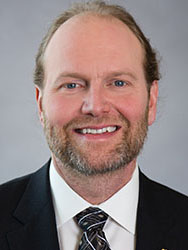
Kerry Butler, PharmD, MBA
Senior Manager, Strategic Consulting
Press Ganey
Kerry Butler brings more than 20 years of relevant experience to his role as a Manager for Press Ganey HPI. Since joining the firm in 2013, his focus has been on making “Reliability a reality” by leveraging his deep experience in implementing, deploying, and integrating high reliability organizing principles in systems, hospitals and clinics throughout the country.
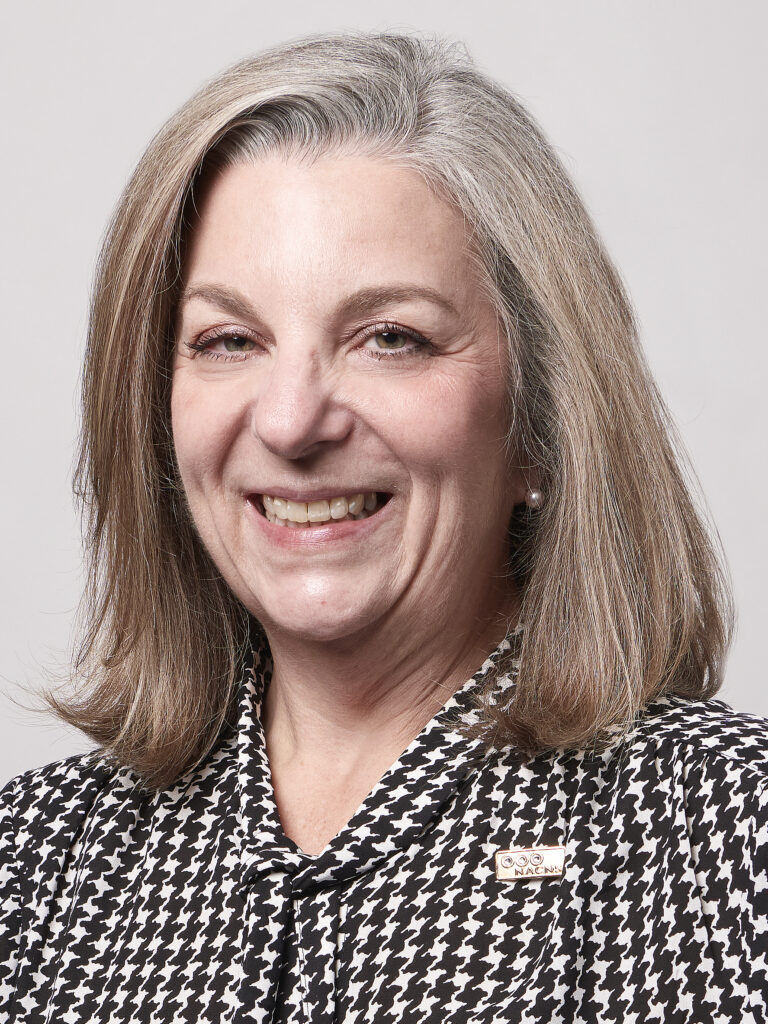
Tracy Chamblee, PhD, APRN, PCNS-BC, CPPS, CPHQ
Director
Envision Healthcare Center for Quality and Patient Safety
Dr. Chamblee is the Director of the Center for Quality and Safety, an AHRQ certified Patient Safety Organization at Envision Healthcare. Dr. Chamblee is an experienced healthcare executive and advanced practice registered nurse with expertise in health system quality and safety, evidence-based practice, and innovation. Additionally, she is an experienced clinician in pediatric critical care and has held academic appointments at the rank of Associate Professor.
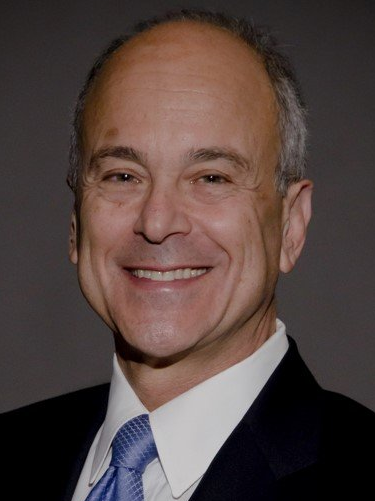
Mark Chassin, MD, FACP, MPP, MPH
President Emeritus
The Joint Commission
Mark Chassin is one of the world’s leading experts in health care quality, patient safety, and process improvement. Before stepping down at the end of 2021, he was President and CEO of The Joint Commission for 14 years, leading the world’s pre-eminent health care standard-setting and accrediting body. Under his leadership, The Joint Commission enjoyed unprecedented growth worldwide in the number of accredited health care organizations, documentation of the positive impacts of accreditation on health care quality, and financial performance. Dr. Chassin introduced the concepts of high reliability and zero harm to health care. He directed the creation of The Joint Commission of programs that disseminated strategies, tools, and training programs for health care organizations to speed their progress toward high reliability.

Lee Erickson, MD LSSMBB
Founder
Adaptive Health Systems, LLC
Dr. Erickson has over 25 years of experience working to improve the delivery of patient care. Prior to creating Adaptive Health Systems, LLC, she served in executive roles at Tufts Medicine, Memorial Sloan Kettering Cancer Center, and the University of Pennsylvania Health System. She is a Lean Sigma Six Master Black Belt and has extensive expertise in quality and patient safety, process improvement methodologies, and health care transformation. She works with organizations to optimize the delivery of patient care and transform their management systems into adaptive systems that can meet the complexity of 21st-century medical care.
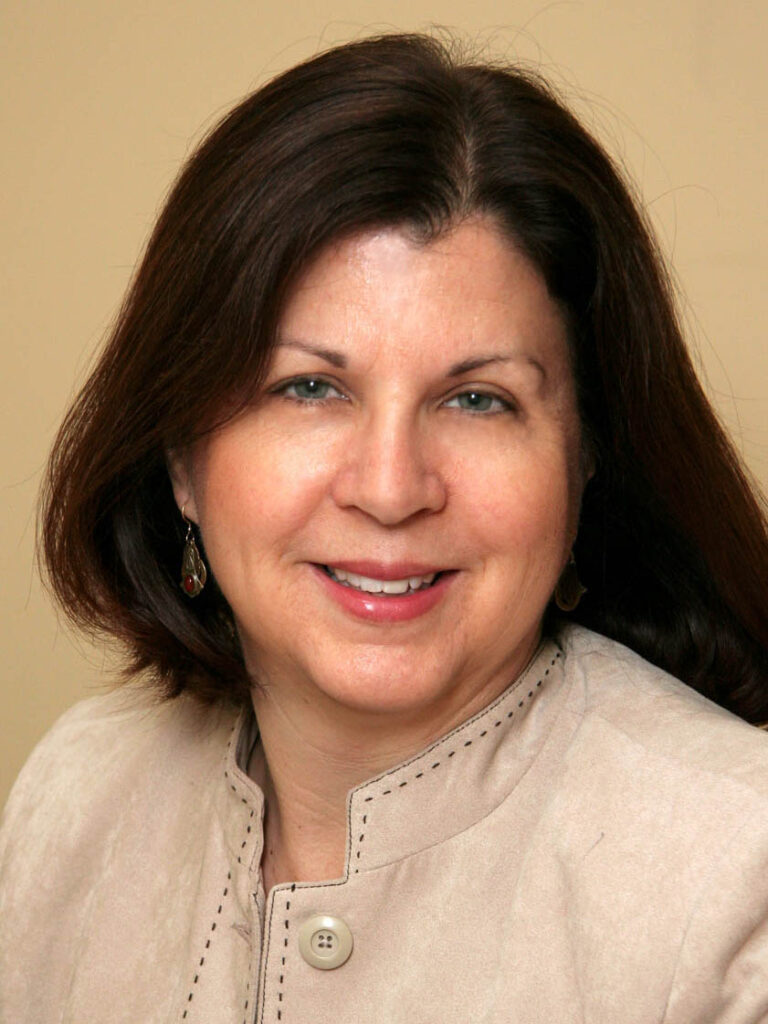
Susan Gilpatrick, RN, CPHRM
Manager, Healthcare Risk Operations
Sutter Health
As the manager of Healthcare Risk Operations for Sutter Heath, Susan Gilpatrick has over 30 years of experience in medical, surgical and obstetrical nursing, and 20 years in process improvement and risk management. Ms. Gilpatrick is the author of the Patient Safety Evaluation System policy for Sutter Health and is considered the subject matter expert on PSWP. She is also responsible for submitting patient safety reports to CHPSO.
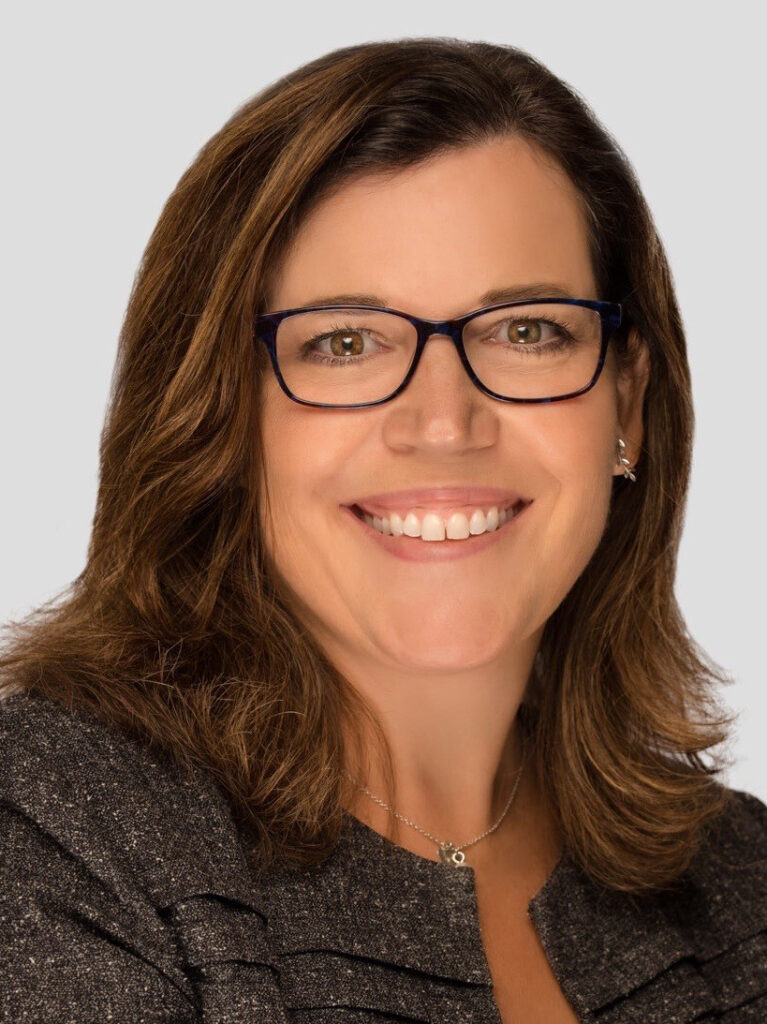
Sharon Hickman, MBA, CPHQ, CPPS, CPXP, LSSMBB
President
ChangeZen Consulting, LLC
Sharon Hickman, President of ChangeZen Consulting, LLC, is a transformative, innovative, and results driven health care executive with a demonstrated track record of achievement in strategic development, performance/operational improvement, customer experience, quality, safety, change management, improvement science, training and development, clinical transformation, and implementation. Working with both for profit and non-profit systems, her experience spreads across all aspects of care including clinical and nonclinical areas, as well as various health care settings.

Robert Imhoff
President
Hospital Quality Institute (HQI)
Robert Imhoff, President of the Hospital Quality Institute, has held positions of responsibility within the health care, non-profit and higher education fields. These positions include: President and CEO of the Maryland Patient Safety Center, Vice President of Development and External Relations for Mt. Washington Pediatric Hospital and Director of Corporate and Foundation Relations for Coppin State University. Mr. Imhoff currently serves on the executive committee of the California Maternal Quality Care Collaborative, the Board of Cal Hospital Compare and Alliance for Quality Improvement and Patient Safety (AQIPS).
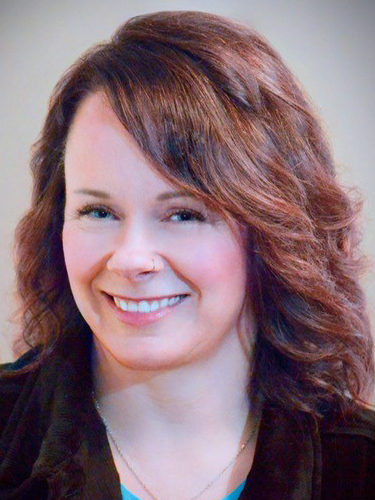
Kelsay Irby, BSN, RN, CCRN
ER Charge Nurse
St. Michael Medical Center
Ms. Irby started her nursing career as an LPN before obtaining her BSN in 2017. She then completed her residency program in a Tacoma Neuro/Trauma ICU before transferring to the cardiac ICU at Harrison Hospital in Bremerton. Just before COVID-19 hit, she switched to emergency medicine and admits that while she loves the ICU and is grateful for the knowledge and experience, the ER is home. Ms. Irby recently made national news as ‘The Nurse Who Called 911’ and is using that publicity to speak out for increased hospital responsibility with regards to patient safety and staffing and a shift in the way nurses and medical colleagues see the profession.

Brent Lee, MD, MPH, FASA
Director, Clinical Excellence and Performance Improvement
North American Partners in Anesthesia
Brent Lee is a board-certified anesthesiologist, fellowship trained in trauma anesthesia, holds a Master of Public Health degree in international health and worked as an Epidemic Intelligence Service Officer at the CDC. Dr. Lee served on the faculty of the Harvard Medical School/Brigham and Women’s Hospital and has held many leadership positions including Chief of Anesthesia, Regional Clinical Director and has served as the Director of Clinical Excellence and Performance Improvement at North American Partners in Anesthesia for the past five years.

Bobbi Maisenbacher, BSN, RN, CPPS
Manager
The Envision Healthcare Center for Quality and Patient Safety
Ms. Maisenbacher serves as Manager of Envision Healthcare Center for Quality and Patient Safety (PSO). Her work in this role is to oversee the PSO Professional Analysis Program that has cultivated a culture where multiple clinical specialties collaborate to improve patient safety, quality, and patient outcomes. As a board Certified Professional in Patient Safety, Ms. Maisenbacher is a recognized expert in health care quality, and her expertise and work continue to support organizational improvement and continuous learning.
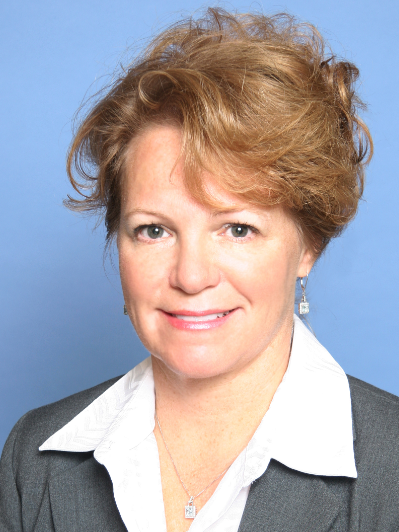
Julie Marhalik-Helms, BSN, RN
Vice President, Quality Improvement
North American Partners in Anesthesia
Julie Marhalik-Helms is Vice President of Quality Improvement for North American Partners in Anesthesia (NAPA). She has been recognized multiple times by Becker’s Hospital Review as one of “50 Experts Leading the Field of Patient Safety.” Ms. Marhalik-Helms is also the Vice President of The Anesthesia Business Group (ABG), which was co-founded by NAPA in 2003, and has served as Vice-Chair of the Anesthesia Business Group (ABG) Qualified Clinical Data Registry (QCDR) since 2015.
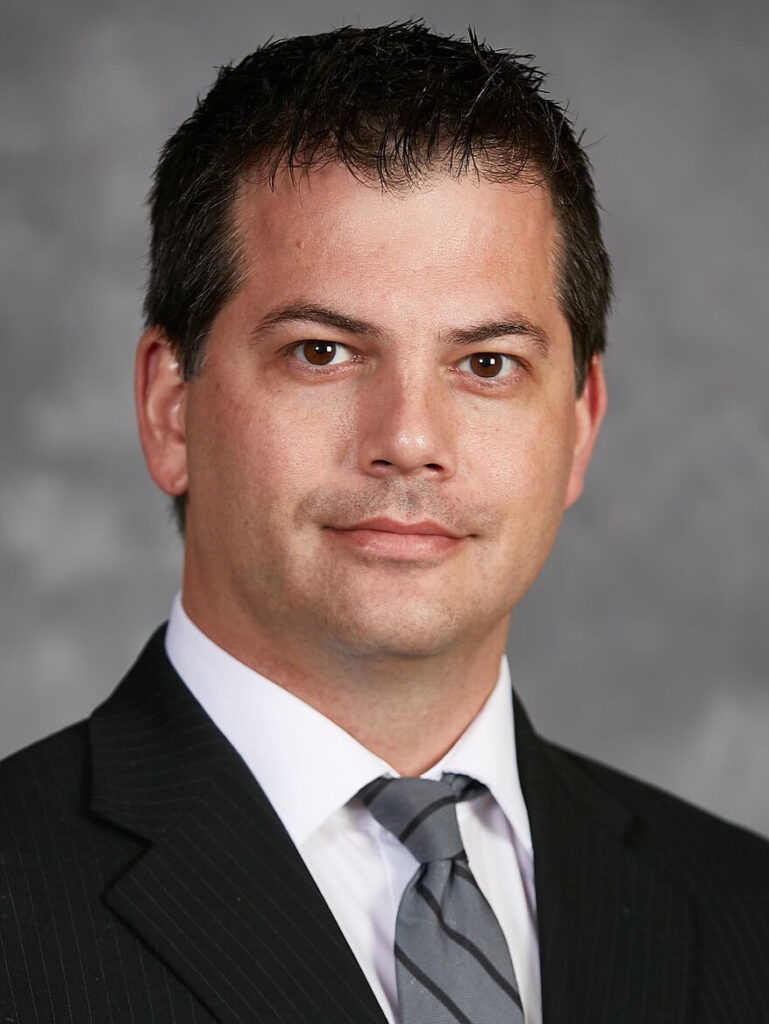
Andrew Martin, MSN, RN, CPHRM
Patient Safety Analyst IV, Consultant
ECRI and Institute for Safe Medication Practices PSO
Andrew Martin’s experience as an intensive care unit and emergency department nurse, corporate clinical risk manager, hospital administrator and now patient safety analyst has provided him an understanding of the clinical, regulatory, and legal aspects of health care. Andrew uses this experience while reviewing PSO members patient safety evaluation systems and providing feedback on their structure, leveraging the PSQIA’s guidance around permissible disclosures and PSO workforce to foster collaborations within organizations.
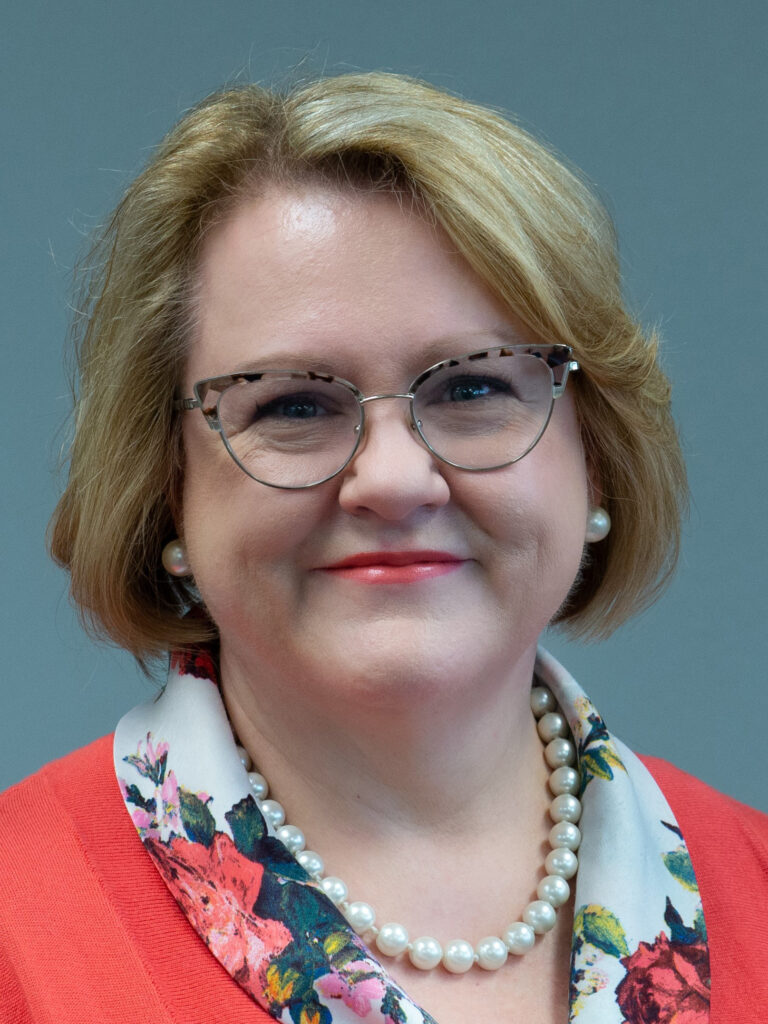
Ellen Martin, PhD, RN, CPHQ, CPPS
Director, Clinical Safety Research
A&M Rural Community Health Institute (ARCHI)
Dr. Ellen Martin is the Director of Patient Safety at the A&M Rural and Community Health Institute Patient Safety Organization, a federally-listed PSO with the Agency for Healthcare Research and Quality. Prior to joining ARCHI, Dr. Martin was the Director of Practice at the Texas Nurses Association and Director of Clinical Practice and Regulatory Affairs at the Texas Association for Home Care and Hospice. Dr. Martin has extensive experience in hospitals, community mental health, home health and hospice and holds certifications in health care quality and patient safety.
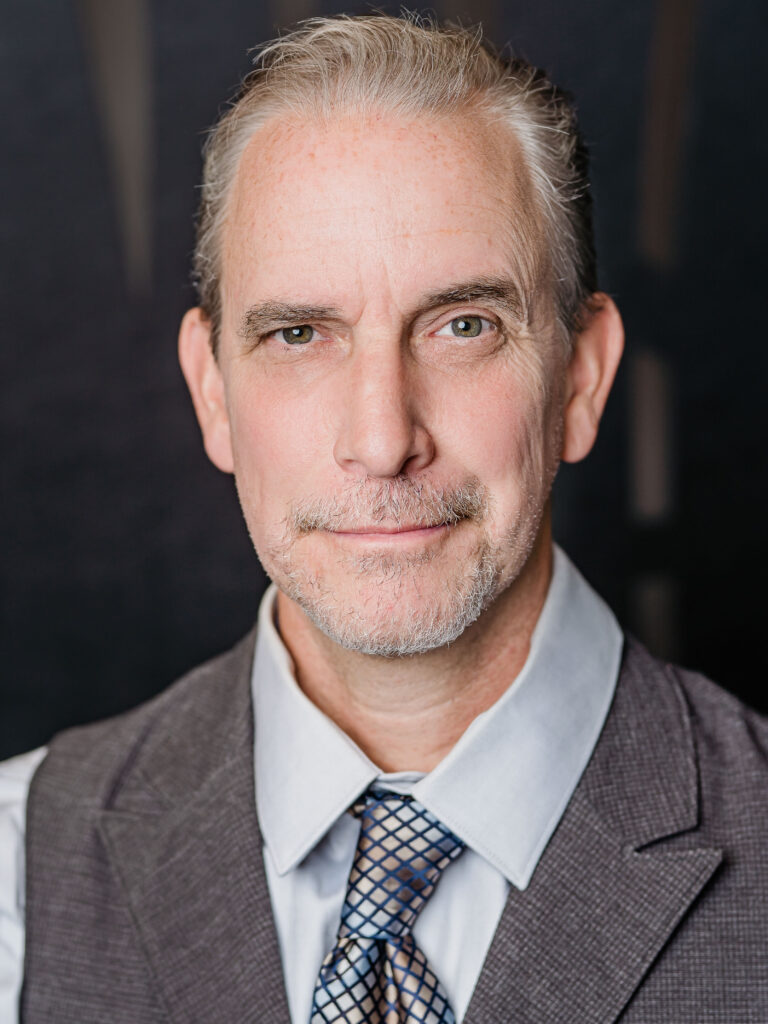
Scott Masten, PhD
Vice President, Measurement Science & Performance Analytics
Hospital Quality Institute (HQI)
In his work for HQI, Dr. Masten focuses on improving health care data quality and reducing patient injury, including the development of both data intake and data analytics platforms. He does this by bringing over 20 years of applied research and data experience including teaching research methods and statistics courses at both the graduate and undergraduate levels.
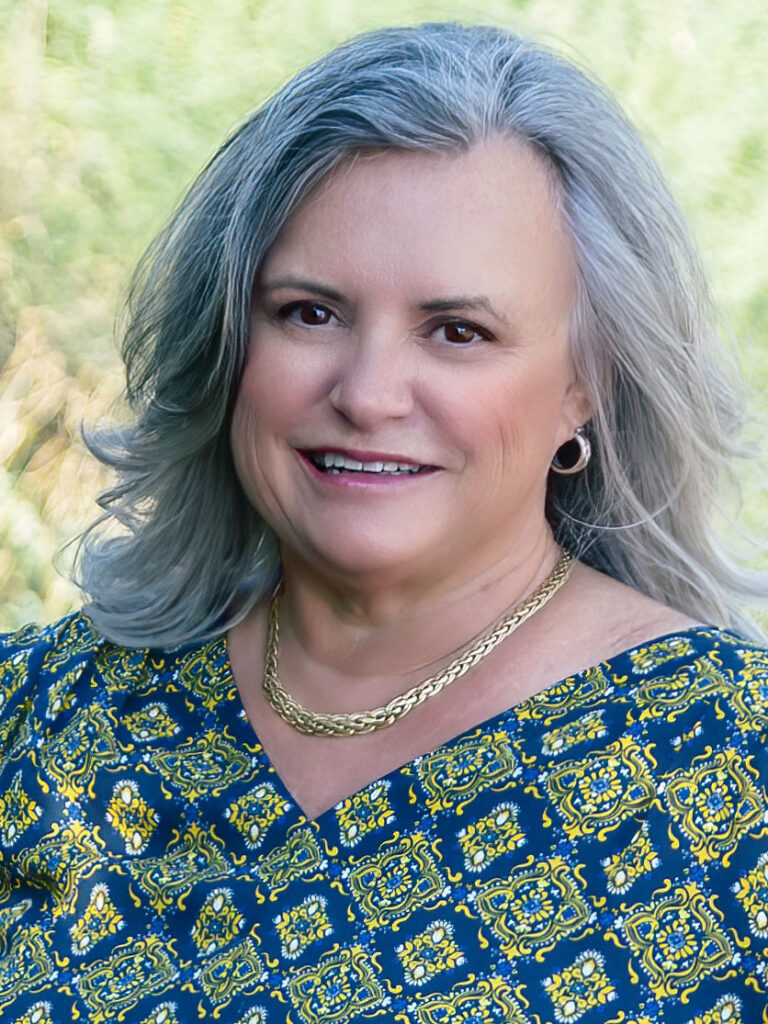
Lisa Mead, RN, MS, CPHQ, CHPC
President
Crowne Healthcare Advisors
Lisa Mead is the President and founder of Crowne Healthcare Advisors. She is a certified healthcare professional in health care quality. Ms. Mead has more than 30 years’ experience in health care, progressing from bedside to C-suite. Ms. Mead spearheaded the formation of the Strategic Radiology Patient Safety Organization (SRPSO) and leads the quality and safety activities to support the network.
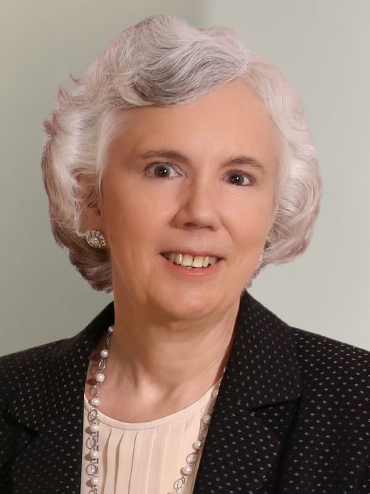
Robin Nagele, Esq.
Principal Health Care
Post & Schell
Robin Nagele is a Principal in the firm’s Health Care Practice Group. She has a national health care litigation and consulting practice, in which she represents proprietary and not-for-profit health care providers, multi-hospital systems, integrated delivery systems, academic/teaching medical centers, and ancillary service providers, along with their medical, executive and corporate leadership, in complex commercial, regulatory and antitrust matters.
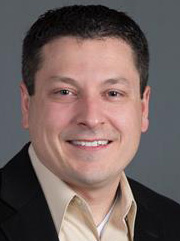
Todd Pelletier, MS, RN, EMT-P
Director, Sutter Health Transfer Center
Sutter Health
Todd Pelletier is the System Director of the Transfer Centers and Patient Transport Services for Sutter Health. As a clinician, he worked as a Pediatric ICU RN, Peds/Neo Transport RN and Flight Nurse/Paramedic. As leadership and growth opportunities presented, he became an educator, supervisor, and manager for both air medical/critical care transport teams. He currently serves as a Reserve Firefighter and EMS Coordinator for the American Canyon Fire Protection District.
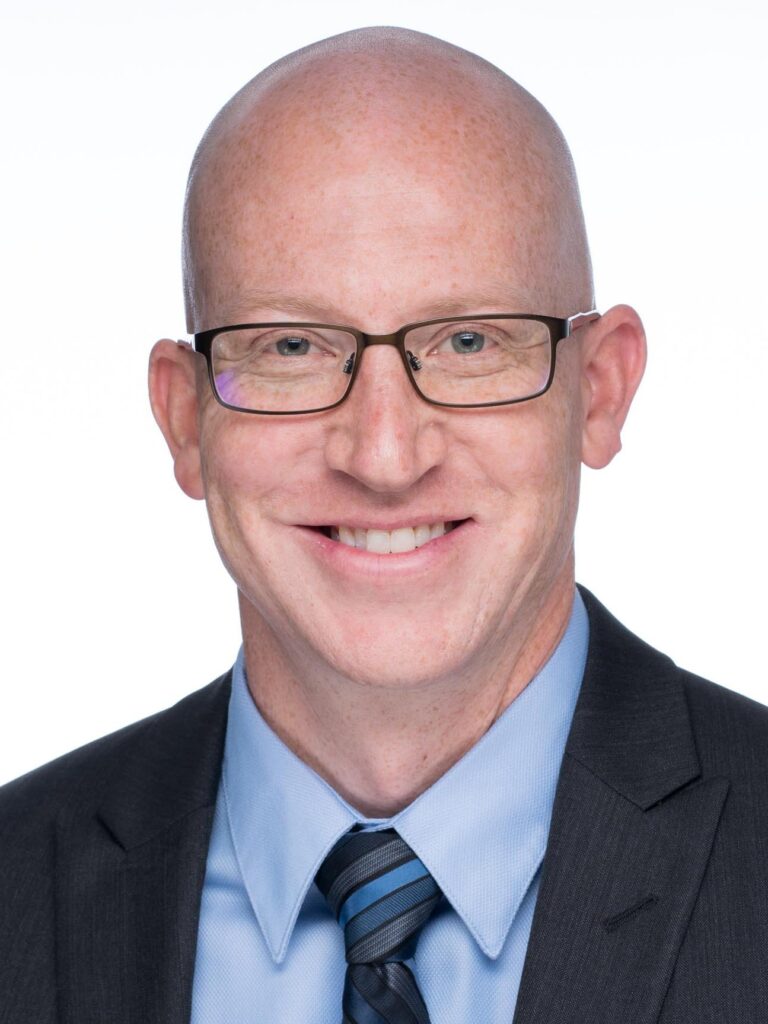
Brett Powell, MPH, MBA, BSN, CPHQ
AVP of Patient Safety, HCA Patient Safety Organization
HCA Healthcare
Brett Powell is the AVP of Patient Safety at HCA Healthcare PSO. After leaving the bedside of patient care, Mr. Powell spent seven years working in several capacities within Healthcare Quality Management, four of which were leading the Quality and Regulatory Compliance program at an acute care hospital. Mr. Powell has participated in and led multiple The Joint Commission accreditation and certification surveys as well as numerous RCAs, FMEAs, and other safety investigations, assessments, and improvement initiatives.
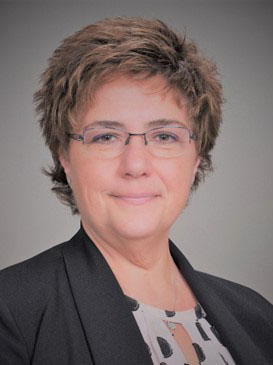
Jeraldine Stoltzfus, MBA-HA, RN, BA
Manager, PSO & Safety Solutions
ECRI
Jeraldine Stoltzfus is a Patient Safety Analyst at ECRI, where her responsibilities under the Patient Safety Organization include risk cause analysis educational presentations, deep dive event analysis and trends, process improvement and liaison services for member organizations. She is experienced in Nursing, Care Management, Quality Improvement, Risk Management and Patient Safety.
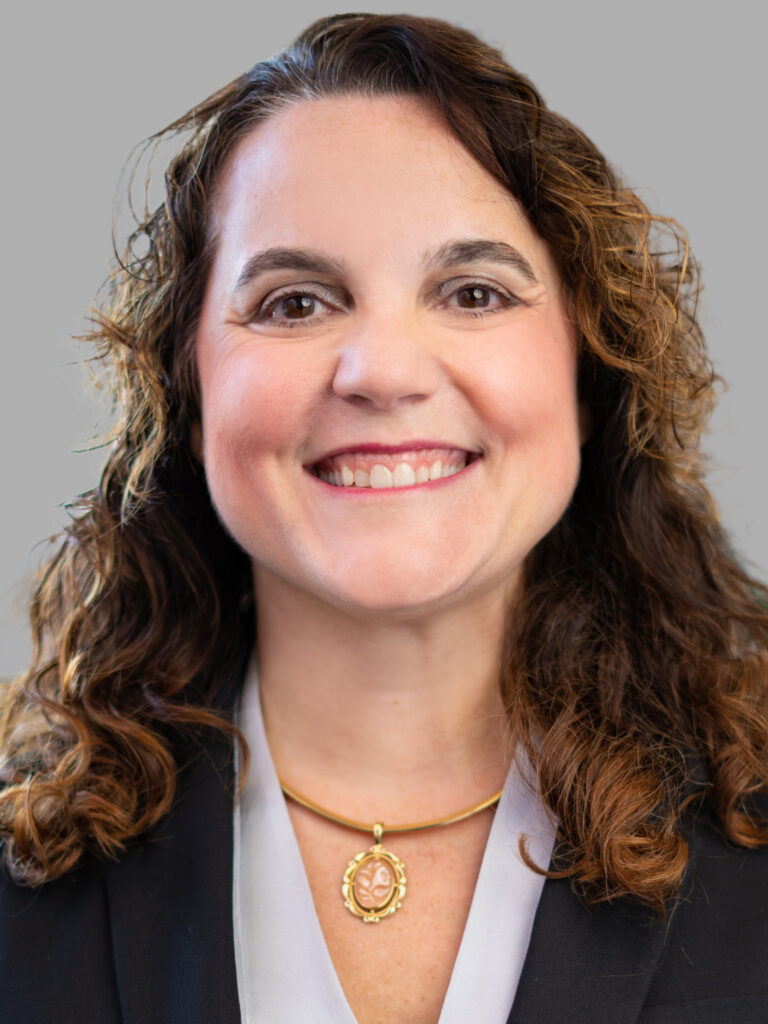
Kristy Stucka, MD, FACEP
National Peer Education & Emergency Medicine Physician
Envision Physician Services
Kristy Stucka is an experienced Emergency Physician with a demonstrated history of leadership in the hospital & health care industry. Dr. Stucka is skilled in Emergency Medicine, Quality & Peer Review, Case Analysis, Case-Based Education, EMRs & Medical Informatics. She is passionate about improving the safety and quality of healthcare delivery to patients across the continuum of care.

Jennifer Taylor, PhD, MPH, CPPS
Director, Center for Firefighter Injury Research and Safety Trends
Dornsife School of Public Health at Drexel University
Dr. Jennifer Taylor is the Director of the Center for Firefighter Injury Research & Safety Trends (FIRST) and the Arthur L. and Joanne B. Frank Professor of Environmental & Occupational Health. Dr. Taylor has been trained in the field of injury prevention and control and uses its principles to address safety issues in health care and first responder industries. Within health care organizations, she investigates safety and quality issues in both patient and provider populations. Her research focuses on system design for patient safety surveillance and the association between organizational culture and injuries to patients and nurses.
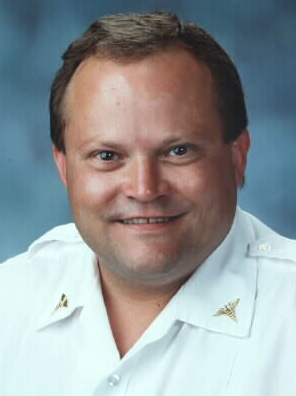
Gary Wingrove, FACPE, CP-C
President
The Paramedic Foundation (EMERG)
Gary Wingrove is the president of The Paramedic Foundation and board chair of the Center for Leadership, Innovation, and Research in EMS (CLIR). CLIR established the nation’s first AHRA-designated PSO dedicated to emergency services (ambulance services and emergency departments). Mr. Wingrove chairs the International Roundtable on Community Paramedicine, is Secretariat for the Global Paramedic Leadership Alliance, immediate past chief commissioner of the American College of Paramedic Executives, and current vice-president of a humanitarian organization, the Keneya ni Kalan.
Members: $99
Nonmembers: $250
For this summit, those who qualify for the $99 registration fee are current members of: HQI, CHPSO, AQIPS or a member of an AQIPS PSO member.
For this summit, nonmembers who qualify for the $250 rate are PSO’s who are not current members
Safe Table Confidentiality Agreement
The PSES Summit includes two National Safe Tables. To participate in the Safe Tables, you are required to agree to a confidentiality agreement that can be found here. You will be asked to agree prior to joining the Safe Table session.
Cancellation Policy
Cancellations must be made in writing seven or more days prior to the scheduled event and emailed to education@calhospital.org.
Substitutions are encouraged. Cancellation and substitution notification may be emailed to education@calhospital.org. In the unlikely event that the program is cancelled, refunds will be issued to paid registrants within 30 days.
Special Accommodations or Questions: If you require special accommodations pursuant to the Americans with Disabilities Act, or have other questions, please call (916) 552-7637.
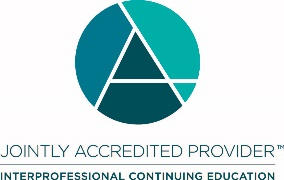
In support of improving patient care, this activity has been planned and implemented by AXIS Medical Education and California Hospital Association. AXIS Medical Education is jointly accredited by the Accreditation Council for Continuing Medical Education (ACCME), the Accreditation Council for Pharmacy Education (ACPE), and the American Nurses Credentialing Center (ANCC), to provide continuing education for the healthcare team.
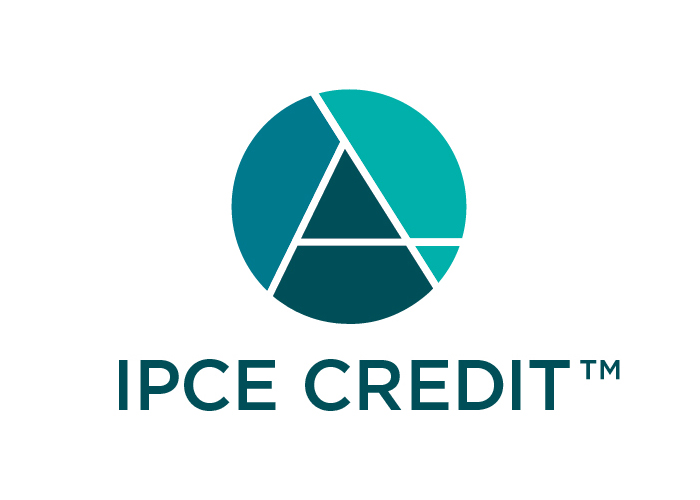
This activity was planned by and for the healthcare team, and learners will receive a maximum of 6.75 Interprofessional Continuing Education (IPCE) credit for learning and change.
Credit Designation for Physicians
AXIS Medical Education designates this live activity for a maximum of 6.75 AMA PRA Category 1 Credits™. Physicians should claim only the credit commensurate with the extent of their participation in the activity.
Credit Designation for Nursing
AXIS Medical Education designates this continuing nursing education activity for a maximum of 6.75 contact hours.
Learners are advised that accredited status does not imply endorsement by the provider or ANCC of any commercial products displayed in conjunction with an activity.
California Board of Registered Nursing
AXIS is approved by the California Board of Registered Nursing, Provider Number 16702, for a maximum of 6.75 contact hours.
Quality Professionals
This program has been approved by the National Association for Healthcare Quality for a maximum of 6.75 CPHQ continuing education credits for this event.
Risk Management
This meeting has been approved for a total of 6.75 contact hours of Continuing Education Credit toward fulfillment of the requirements of ASHRM designations of FASHRM (Fellow) and DFASHRM (Distinguished Fellow) and towards CPHRM renewal.
AXIS Contact Information
For information about the accreditation of this program please contact AXIS at info@axismeded.org.
Disclosure of Conflicts of Interest
AXIS Medical Education requires faculty, instructors, authors, planners, directors, managers, reviewers, and other individuals who are in a position to control the content of this activity to disclose all real or apparent conflicts of interest they may have with ineligible companies. An ineligible entity is any organization whose primary business is producing, marketing, selling, re-selling, or distributing healthcare products used by or on patients. All relevant conflicts of interest are identified and mitigated prior to initiation of the planning phase for an activity.
AXIS has mitigated and disclosed to learners all relevant conflicts of interestdisclosed by staff, planners, faculty/authors, peer reviewers, or others in control of content for this activity. Disclosure of a relationship is not intended to suggest or condone bias in any presentation but is made to provide participants with information that might be of potential importance to their evaluation of a presentation or activity. Disclosure information for faculty, authors, course directors, planners, peer reviewers, and/or relevant staff is provided with this activity.
The faculty reported the following relevant financial relationships or relationships they have with ineligible companies of any amount during the past 24 months:
| Name of Faculty/Presenter | Reported Financial Relationship |
| Mark Chassin, MD, FACP, MPP, MPH | Nothing to disclose |
| Kerry Butler, PharmD, MBA | Nothing to disclose |
| Susan Gilpatrick, RN, CPHRM | Nothing to disclose |
| Todd Pelletier, MS RN, EMT-P | Nothing to disclose |
| Lee Erickson, MS, LSSMBB | Nothing to disclose |
| Andrew Martin, MSN, RN, CPHRM | Nothing to disclose |
| Jeraldine Stoltzfus, MBA-HA, RN, BA | Nothing to disclose |
| Kelsay Irby, RN | Nothing to disclose |
| Sharon Hickman, MBA, CPHQ, CPPS | Nothing to disclose |
| Julie Marhalik-Helms, BSN, RN, | Nothing to disclose |
| Brent Lee, MD, MPH, FASA | Nothing to disclose |
| Scott Masten, PhD | Nothing to disclose |
| Peggy Binzer, Esq. | Nothing to disclose |
| Lisa Mead, RN, MS, CPHQ | Nothing to disclose |
| Brett Powell, MPH, MBA, BSN, CPHQ | Nothing to disclose |
| Tracy Chamblee, PhD, APRN, PCNS-BC, CPPS, CPHQ | Nothing to disclose |
| Bobbi Maisenbacher, BSN, RN, CPPS | Nothing to disclose |
| Kristy Stucka, MD, FACEP | Nothing to disclose |
| Jennifer Taylor, PhD, MPH, CPPS | Nothing to disclose |
| Gary Wingrove, FACPE, CP-C | Nothing to disclose |
| Robin Nagele, Esq. | Nothing to disclose |
| Ellen Martin, PhD, RN, CPHQ, CPPS | Nothing to disclose |
The following directors, planners, managers, and reviewers reported no financial relationships they have with any ineligible company of any amount during the past 24 months:
| Name of Directors, Planners, Managers and Reviewers |
| Robin Campbell |
| Carrie Harcharik |
| Lisa Hartzell |
| Jessica Lightle |
| Jaime Welcher |
| Ronald Viggiani, MD |
| Holly M. Hampe, DSc., RN, MHA, MRM, CPHQ |
| Dee Morgillo, MEd., MT(ASCP), CHCP |
Disclaimer
Participants have an implied responsibility to use the newly acquired information to enhance patient outcomes and their own professional development. The information presented in this activity is not meant to serve as a guideline for patient management. Any procedures, medications, or other courses of diagnosis or treatment discussed in this activity should not be used by clinicians without evaluation of patient conditions and possible contraindications on dangers in use, review of any applicable manufacturer’s product information, and comparison with recommendations of other authorities.
Disclosure of Unlabeled Use
This educational activity may contain discussion of published and/or investigational uses of agents that are not indicated by the FDA. The planners of this activity do not recommend the use of any agent outside of the labeled indications.
The opinions expressed in the educational activity are those of the faculty and do not necessarily represent the views of the planners. Please refer to the official prescribing information for each product for discussion of approved indications, contraindications, and warnings.
Requirements for credit:
- Attend/participate in the educational activity and review all course materials.
- Complete the CE Attestation/Evaluation form online by 11:59 pm ET on June 10, 2023. Instructions will be provided. If you do not complete the online evaluation by this date, you will not be able to get CME/CE credit for this event.
- Upon successful completion of the online form, your statement of completion will be presented to you to print.